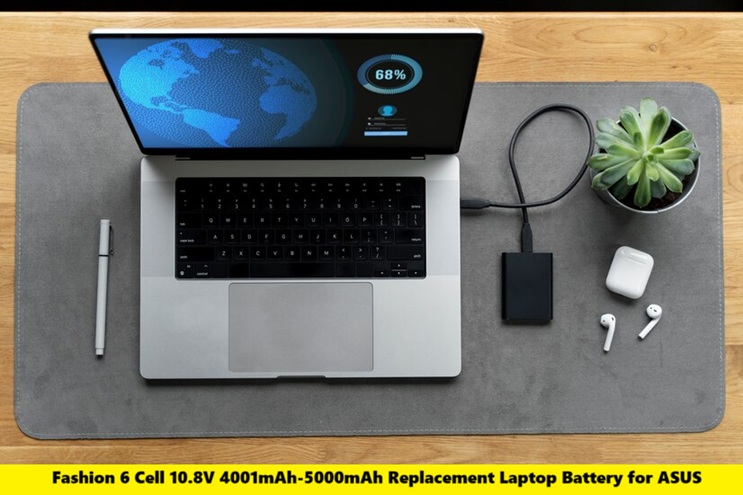Soujiyi has emerged as an intriguing concept that has captured the attention of many people worldwide. But what exactly is Soujiyi? In its simplest form, Soujiyi represents a holistic approach to life, philosophy, and even business, rooted in balance, mindfulness, and simplicity. Although Soujiyi is a term not widely known, it encapsulates ideas and practices that are increasingly relevant in today’s fast-paced, technology-driven world.
Why has Soujiyi become a focal point of conversation in various fields, from personal development to business strategies? Its versatility and depth make it applicable to many aspects of life. Whether it’s used as a guide for personal well-being or as a strategy for leadership, Soujiyi offers profound wisdom that resonates across different cultures and lifestyles.
The Origin and Meaning of Soujiyi
The word “Soujiyi” may seem new to some, but it carries with it a rich cultural and linguistic history. The term is believed to be derived from ancient philosophical teachings that focus on simplicity and harmony. While not directly tied to any one language or tradition, Soujiyi combines elements of Eastern and Western philosophies, drawing on the importance of balance, mindfulness, and an appreciation for the present moment.
In a deeper sense, Soujiyi reflects the idea that life should not be overly complicated. It advocates for stripping away the unnecessary and focusing on what truly matters. Whether applied to one’s personal life, business, or creative pursuits, the philosophy encourages clarity and purposeful action.
Historical Context of Soujiyi
Historically, Soujiyi was not a widely used concept, but its roots can be traced back to various philosophical movements that emphasized minimalism, mindfulness, and the pursuit of balance. Ancient thinkers in both the East and West have explored similar ideas under different names, with Soujiyi acting as a modern evolution of these traditional values.
In early philosophical texts, themes resembling Soujiyi were discussed in relation to achieving peace of mind and living in harmony with one’s surroundings. These early references indicate that while Soujiyi is gaining popularity in modern times, its core principles have been present in human thinking for centuries.
Soujiyi in Modern Culture
Today, Soujiyi has found a place in modern culture as a philosophy that aligns with many contemporary issues and challenges. From the pressures of maintaining work-life balance to navigating the overwhelming flood of information and stimuli in the digital age, people are increasingly turning to Soujiyi to find simplicity and focus.
The philosophy of Soujiyi can be seen in popular movements that encourage decluttering, slow living, and intentional decision-making. It also resonates with those who seek to live more sustainably, as it often emphasizes the importance of reducing consumption and focusing on quality over quantity.
The Spiritual and Philosophical Aspects of Soujiyi
On a spiritual level, Soujiyi is closely linked to mindfulness and presence. It encourages individuals to live in the moment, fully engaged with their surroundings and actions. This mindful approach is not only a tool for personal peace but also a way to cultivate deeper connections with others and the world.
Philosophically, Soujiyi draws from traditions such as Taoism, Stoicism, and Zen Buddhism, all of which value simplicity, inner peace, and living in harmony with the natural flow of life. It suggests that by eliminating distractions and unnecessary complexity, one can achieve a greater sense of purpose and fulfillment.
Soujiyi in Art and Literature
The principles of Soujiyi are often reflected in creative works, where artists and writers explore themes of simplicity, focus, and clarity. Minimalist art, for example, is a direct expression of Soujiyi, where the artist uses fewer elements to convey deeper meaning. This artistic choice mirrors the philosophy’s emphasis on reducing clutter—both physical and mental—to focus on the essence of things.
In literature, Soujiyi-inspired narratives focus on character growth through self-reflection and mindfulness. These works often promote the idea that life’s greatest rewards come from within, rather than from external achievements or possessions.
Soujiyi as a Lifestyle or Mindset
For many, Soujiyi is more than just a concept—it’s a lifestyle or mindset that shapes their daily decisions and actions. Living by Soujiyi means prioritizing what truly matters and letting go of things that don’t add value. This could mean decluttering one’s home, simplifying one’s schedule, or even rethinking relationships and commitments.
Those who adopt the Soujiyi mindset often report greater clarity, less stress, and a stronger sense of purpose. By focusing on simplicity and mindfulness, they are better able to navigate the complexities of modern life without becoming overwhelmed.
Soujiyi in Business and Leadership
The principles of Soujiyi are not just confined to personal life—they have also found applications in the world of business and leadership. In fact, many forward-thinking leaders and organizations are beginning to embrace the Soujiyi philosophy to cultivate a work environment that fosters simplicity, clarity, and focus.
In a business context, Soujiyi encourages leaders to cut through the noise and focus on what truly matters for long-term success. This means prioritizing quality over quantity, fostering meaningful relationships with clients and employees, and eliminating unnecessary complexities that can stifle creativity and productivity.
In leadership, Soujiyi promotes the idea of leading with intention and clarity. Leaders who practice Soujiyi are mindful of their actions and decisions, always aligning them with the core values and mission of their organization. This approach not only builds trust and respect within the team but also creates a culture where employees feel empowered to make decisions that align with the greater purpose of the company.
Moreover, Soujiyi-inspired businesses often focus on sustainable practices, opting for long-term success rather than quick, short-term gains. This means that instead of chasing rapid growth or scaling at all costs, Soujiyi-oriented companies invest in steady, thoughtful growth that is sustainable and beneficial for all stakeholders involved.
The Role of Soujiyi in Mental and Emotional Wellbeing
In today’s fast-paced world, mental and emotional wellbeing is a growing concern. The constant pressure to succeed, stay connected, and juggle multiple responsibilities can lead to burnout, stress, and anxiety. This is where Soujiyi comes in as a powerful tool for maintaining balance and improving mental health.
At its core, Soujiyi encourages mindfulness—being fully present in the moment and focusing on the here and now rather than worrying about the future or dwelling on the past. This practice of mindfulness has been shown to reduce stress, increase emotional resilience, and improve overall mental wellbeing.
Soujiyi also teaches the importance of simplifying one’s life, which can have profound effects on emotional health. By letting go of unnecessary worries, possessions, and commitments, individuals are able to create more mental space for peace and contentment. This process of decluttering not only applies to physical spaces but also to thoughts and emotions, helping individuals to feel less overwhelmed and more in control of their lives.
In addition, the Soujiyi approach to emotional wellbeing emphasizes self-compassion and acceptance. Instead of striving for perfection or constantly comparing oneself to others, Soujiyi encourages individuals to embrace their imperfections and focus on their unique path in life. This can lead to a greater sense of self-worth and emotional stability, fostering a healthier and more positive mindset.
Soujiyi in Technology and Innovation
Soujiyi has even begun to make its mark on the world of technology and innovation. As technology continues to advance at a rapid pace, there is a growing recognition of the need for simplicity and clarity in design, development, and user experience. Soujiyi’s principles of minimalism and focus on essential functionality align perfectly with the goals of modern technological innovation.
In product design, for example, Soujiyi advocates for a user-centric approach that prioritizes simplicity and ease of use. This can be seen in the growing trend of minimalist design in tech products, where designers aim to create interfaces that are intuitive and free from unnecessary distractions. Companies like Apple have famously embraced these principles, with their products often praised for their sleek, simple design and user-friendly interface.
On a broader scale, Soujiyi is influencing the way innovators think about technology’s role in society. Rather than creating products and services that contribute to the overwhelming flood of information and stimuli, Soujiyi-inspired innovators focus on solutions that simplify life and reduce complexity. This might involve creating tools that help people manage their time more effectively, reduce digital clutter, or promote mindfulness and mental clarity.
Moreover, the Soujiyi philosophy encourages a responsible and ethical approach to innovation. In an age where technological advancements can sometimes prioritize profit over the well-being of users, Soujiyi serves as a reminder to focus on long-term value and positive impact. By aligning technological progress with the principles of simplicity and mindfulness, innovators can create products that not only enhance lives but also contribute to a more balanced and harmonious world.
Soujiyi in Personal Development
Personal development is one of the key areas where the philosophy of Soujiyi can have a profound impact. In a world where self-improvement is often associated with relentless productivity and constant striving, Soujiyi offers a refreshing alternative—one that emphasizes inner growth, mindfulness, and balance over external achievements.
One of the main principles of Soujiyi in personal development is the idea of focusing on the present moment. Instead of fixating on future goals or past mistakes, Soujiy’i encourages individuals to live fully in the present, making mindful choices that align with their values and desires. This practice not only leads to greater peace of mind but also helps individuals make more intentional and fulfilling decisions.
Soujiyi also promotes the idea of continuous growth, but in a way that is sustainable and balanced. Rather than pushing oneself to the brink of exhaustion in pursuit of success, Soujiyi advocates for steady, mindful progress. This means setting realistic goals, taking time to reflect on one’s journey, and allowing for rest and self-care along the way.
Additionally, Soujiyi encourages personal growth that is rooted in simplicity and authenticity. In a world that often equates success with material wealth or social status, Soujiyi reminds us that true fulfillment comes from living a life that is aligned with our core values and purpose. This might involve decluttering one’s life of unnecessary distractions, letting go of societal pressures, and focusing on what truly matters.
Many individuals who have embraced Soujiyi in their personal development journey report a greater sense of clarity, purpose, and inner peace. By focusing on mindful growth and living in alignment with their true selves, they are able to cultivate a life that is both meaningful and fulfilling.
Misconceptions and Myths about Soujiyi
As with any philosophy or concept that gains popularity, Soujiyi has been subject to a number of misconceptions and myths. Some people may misunderstand its principles or view it as a trend without fully grasping its deeper meaning and benefits. It’s important to address these misconceptions in order to provide a clear and accurate understanding of what Soujiyi truly represents.
One common misconception is that Soujiyi is simply about minimalism or reducing material possessions. While Soujiyi does encourage simplicity and decluttering, it is not solely focused on the material aspect. Soujiyi goes beyond just minimalism—it is about finding balance, focusing on what truly matters, and living mindfully in all areas of life, including relationships, work, and personal growth.
Another myth is that Soujiyi requires a complete lifestyle overhaul. Some may think that adopting Soujiyi means renouncing modern conveniences or drastically changing one’s way of life. In reality, Soujiyi is a flexible philosophy that can be adapted to each individual’s circumstances. It’s about making mindful choices and small changes that lead to greater simplicity and clarity, not about following rigid rules or extremes.
Finally, some people may assume that Soujiyi is a passive or laid-back approach to life. However, Soujiyi is not about avoiding challenges or staying complacent. It actually encourages mindful action and purposeful decision-making. It’s about eliminating distractions and unnecessary complications so that you can focus on what truly matters and make intentional progress toward your goals.
By clearing up these misconceptions, individuals can better understand how to apply Soujiyi in a way that is meaningful and beneficial to their own lives.
How to Incorporate Soujiyi into Your Life
Incorporating Soujiyi into your life can be a transformative experience. Whether you’re looking to simplify your personal routine, improve your mental clarity, or create a more mindful approach to work, Soujiy’i offers practical tools and principles to help you achieve balance and focus.
Here are some steps to get started:
- Simplify Your Surroundings: Start by decluttering your physical space. Remove items that no longer serve a purpose or add value to your life. This can create a sense of calm and make it easier to focus on the things that truly matter.
- Practice Mindfulness: Incorporate mindfulness into your daily routine. Whether through meditation, deep breathing, or simply being fully present in your activities, mindfulness is a key aspect of Soujiy’i. It helps you stay grounded and aware of the present moment.
- Set Clear Intentions: Soujiyi encourages living with intention. Take time to reflect on your goals, values, and priorities. By setting clear intentions, you can align your actions with what truly matters to you, rather than getting caught up in distractions.
- Embrace Simplicity in Decision-Making: When faced with decisions, ask yourself, “Does this add value to my life?” Soujiy’i teaches us to focus on quality over quantity, so make choices that align with your core values and simplify your life.
- Create Time for Reflection: Regularly reflect on your progress and evaluate whether your actions are in line with your intentions. This practice of self-reflection can help you stay on track and make necessary adjustments to live more mindfully.
The Global Impact of Soujiyi
Soujiyi, though rooted in individual simplicity and mindfulness, has slowly made its way into the broader global consciousness. In a world that often glorifies complexity, multitasking, and relentless productivity, Soujiyi’s philosophy offers a much-needed shift toward balance, focus, and intentional living. Its principles resonate deeply with many cultural movements that advocate for sustainability, wellness, and a more mindful approach to living.
Globally, the rise of minimalism and slow living movements in countries like Japan, Scandinavia, and even in the U.S., reflect many core principles of Soujiy’i. For instance, Japan’s minimalist lifestyle, popularized through Marie Kondo’s KonMari method, advocates for decluttering physical and mental spaces—a practice aligned with Soujiyi’s call for simplicity and focus on what matters most. In Scandinavia, the concept of “hygge” (creating a comfortable, cozy, and intentional environment) echoes Soujiyi’s emphasis on mindful living and the importance of emotional well-being in everyday life.
Beyond personal lifestyle, Soujiyi’s influence can be seen in global business practices. More companies are embracing a mindful approach to their operations, focusing on sustainability, work-life balance, and ethical business models. The rise of remote work, flexible schedules, and wellness programs reflects the growing recognition of Soujiyi’s ideals in the corporate world. Organizations are beginning to realize that productivity doesn’t necessarily mean constant busyness, but rather intentional, focused work that aligns with the core values of both the individual and the company.
Moreover, in industries like fashion and consumer goods, there’s a growing demand for ethical, sustainable products that favor quality over quantity—another reflection of Soujiyi’s influence. Consumers are becoming more mindful of their purchases, seeking products that align with their values and contribute to a more balanced, eco-friendly lifestyle. Global brands are now responding to this shift by adopting more transparent, environmentally responsible business practices.
While Soujiy’i may not be a household name in every country, its influence can be seen in these growing global trends toward intentionality, mindfulness, and simplicity. As the world continues to grapple with challenges like environmental degradation, mental health crises, and the pressures of modern living, Soujiyi’s principles offer a timeless solution that can benefit both individuals and societies as a whole.
Conclusion
Soujiyi is more than just a buzzword or a passing trend—it’s a powerful philosophy that has the potential to transform the way we live, work, and interact with the world around us. By embracing the principles of simplicity, mindfulness, and balance, Soujiy’i encourages us to cut through the noise, focus on what truly matters, and lead more intentional, fulfilling lives.
Also, Read, Arfraier q Faz de Tdo: Exploring the Meaning and Popularity Behind This Phrase.







